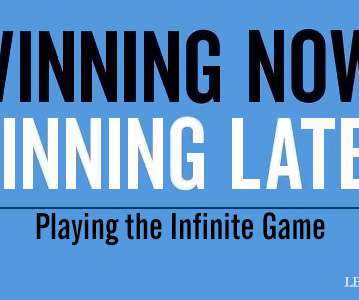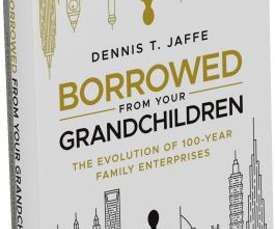Winning Now, Winning Later: Playing the Infinite Game
Leading Blog
JUNE 23, 2020
By taking the right actions to improve operations now, we could position ourselves to improve performance later, while the reverse would also hold true: short-term results would validate that we were on the right long-term path. Grow while keeping fixed costs constant. The quality of thought in a team or organization matters.












Let's personalize your content